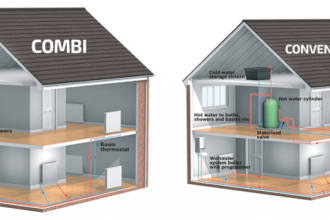Living with depression can often feel like navigating through a fog—unclear, challenging, and isolating. However, it’s important to remember that you’re not alone in this journey. Across the globe, millions are walking a path similar to yours, trying to find their way through the haze. This guide aims to light a beacon of hope and provide practical coping strategies and self-care tips designed to aid you in managing the symptoms of depression. Through understanding, compassion, and actionable steps, we can explore ways to regain a sense of control and contribute to the healing process, one day at a time.
Acknowledge and Accept Your Feelings
It’s absolutely vital to start your journey by acknowledging and accepting your feelings without any form of judgment. Depression often carries with it a heavy load of emotions—intense sadness, overwhelming guilt, a profound sense of emptiness—that can feel like a relentless whirlwind. Instead of resisting these emotions or berating yourself for experiencing them, try to approach them with kindness, compassion, and understanding. Accepting your feelings is an essential first step on the path to healing. It allows you to begin understanding your emotional triggers and, over time, to discover effective strategies for coping with them. This process of acknowledgment and acceptance paves the way for deeper emotional resilience and a healthier mental state.
Seek Professional Help
Venturing into the realm of professional help is a significant and often necessary step in managing depression. Psychologists, psychiatrists, and licensed counselors are equipped with the necessary expertise to provide treatment for depression and personalized care. Whether through therapy, medication, or a combination of both, professional assistance offers a structured and evidence-based approach to tackling depression’s complexities. Engaging with professionals can provide you with a safe space to explore your thoughts and feelings, gain insights into your behaviors, and develop coping strategies that are tailored to your unique situation. Remember, seeking help is a sign of strength and an important investment in your mental health and well-being.
Establish a Routine
One of the insidious effects of depression is how it can dismantle the structure from your life, causing the days to blur and blend into one long, indistinguishable continuum. Establishing a daily routine can serve as a powerful countermeasure, reintroducing a sense of normalcy and predictability to your life. Start with simple, achievable goals: set specific times for waking up, eating meals, and going to bed. Structuring your day in such a manner can make daily tasks appear more manageable, helping you to regain a sense of control and mastery over your own life. Over time, this routine acts as a scaffold, supporting your mental health and providing a framework within which you can rebuild.
Stay Physically Active
The benefits of regular physical activity on mood and mental health are profound and well-documented. Engaging in consistent exercise can have a significant positive impact on your mood and help alleviate symptoms of depression. Physical activity triggers the release of endorphins, chemicals in the brain that act as the body’s natural antidepressants, leading to an improvement in mood. Importantly, you don’t need to commit to high-intensity workouts to experience these benefits; even simple activities like a daily walk, gentle yoga, or stretching exercises can make a meaningful difference. The key is to find a form of physical activity that you enjoy and can commit to on a regular basis, as consistency is critical in reaping the mood-boosting rewards of exercise.
Connect with Others
Isolation and withdrawal are common symptoms of depression, creating a vicious cycle that can intensify feelings of loneliness and despair. However, making connections with others can offer significant relief and a sense of belonging. Sharing your thoughts and experiences with friends, family, or members of support groups can help you feel understood and less isolated. Even if the thought of socializing seems daunting at first, begin with small steps such as sending a text message, making a phone call, or joining an online community. It’s important to remember that it’s okay to seek help and rely on the support of others. Connecting with people who understand and support you can be incredibly healing and empowering.
Practice Mindfulness and Relaxation Techniques
Incorporating mindfulness and relaxation techniques into your daily routine can be a powerful strategy for managing depression. Practices such as meditation, deep breathing exercises, and progressive muscle relaxation have been shown to effectively reduce stress, enhance concentration, and promote an overall sense of peace and well-being. These techniques encourage you to focus your attention on the present moment, helping to diminish negative self-talk and slow down the onslaught of racing thoughts. Regular practice of these techniques can make it easier to navigate daily challenges by fostering a heightened state of awareness and calm, providing you with tools to better manage depressive symptoms and improve your quality of life.
Living with depression requires patience, understanding, and a commitment to taking small, manageable steps toward healing. By acknowledging your feelings, seeking professional help, establishing a routine, staying physically active, connecting with others, and practicing mindfulness and relaxation techniques, you can make significant strides in managing your symptoms and improving your well-being. Remember, you are not alone in this fight. There are countless resources, communities, and individuals ready to support you. Take each day at a time, celebrate your progress, no matter how small, and never lose hope. Your mental health journey is uniquely yours, and with determination and support, you can find your way through the fog of depression toward a brighter, more hopeful future.















